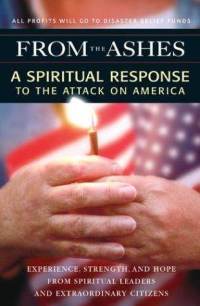by Jas Faulkner
 The night that Susan Smith confessed to killing her two sons, I had drawn the short straw and was working the front desk and crisis line instead of my usual eight to sixteen hours behind the double layered locking steel doors that kept the rest of the world separated from my adolescent psychiatric clients and vice versa. I watched the bright red sunset over West Nashville fade into the comforting night that seemed to becalm the small hospital that had been rocking and rolling with code after code all day.
The night that Susan Smith confessed to killing her two sons, I had drawn the short straw and was working the front desk and crisis line instead of my usual eight to sixteen hours behind the double layered locking steel doors that kept the rest of the world separated from my adolescent psychiatric clients and vice versa. I watched the bright red sunset over West Nashville fade into the comforting night that seemed to becalm the small hospital that had been rocking and rolling with code after code all day.
And then the first call came in. It was a man and he was sobbing.
“I just want to know why,” he managed to choke out his question.
“Why what?” I shifted into de-escalation mode without even thinking about it. “Talk to me and we’ll see what we can do to make this better.”
“She admitted it. She said she killed them.” I prepared to open up another line and hit the speedcall for Metro Nashville PD.
“How can somebody do that? Those poor little boys. Her little boys.”
As he asked for answers, I saw three more calls coming in and less than a minute after that, the board was full and calls would spill over to the main hospital switchboard. Lucky for everyone concerned, no one was dealing with a kid in crisis. They were all adults, all of whom were trying to wrap their minds around the unspeakable cruelty that was playing out on the newscasts.
They sat on hold. Every one of them wanted to know what kind of person would do such a thing. Some of them were so angry that they were frightened by their own responses to the information that Susan Smith had calmly plotted the deaths of Michael and Alexander Smith right down to the story she told to deflect blame. Others were grieving the loss of those two boys as the noise of their own children playing in another room filtered into the background noise as they spoke to me. Some wanted to pray. Some demanded to know where God was. Some people wanted to help and felt helpless.
I answered those calls all night. At midnight when I rolled the number over to medical campus crisis/security, the board was still lighting up.
It’s a good bet that every church, every newsroom, and every outlet with a person answering the phone was just as busy that night. People wanted answers. They wanted to know the magical solution, whether by dint of theological rationale or the odd alchemy spelled out by the DSM, that would explain cruelty. There are no easy explanations.
Years later, when many Americans were trying to make sense of the mindset behind the killing of nearly three thousand people on  September 11th, 2001, Rodale Press worked with Beliefnet.com to produce a volume of collected essays by world leaders and responses from members of Beliefnet’s ecumenical community. The book, “From the Ashes: A Spiritual Response to the Attack On America” speaks to the bigger picture in terms of how the world regarded what happened back then. It also speaks to the nature of evil and in a way, it is a continuation of the groundwork laid by Rabbi Kushner’s “When Bad Things Happen To Good People.”
September 11th, 2001, Rodale Press worked with Beliefnet.com to produce a volume of collected essays by world leaders and responses from members of Beliefnet’s ecumenical community. The book, “From the Ashes: A Spiritual Response to the Attack On America” speaks to the bigger picture in terms of how the world regarded what happened back then. It also speaks to the nature of evil and in a way, it is a continuation of the groundwork laid by Rabbi Kushner’s “When Bad Things Happen To Good People.”
“From the Ashes” is superficially religious, but it is also one of the most humane/humanistic answers to the questions that plague us as we contemplate horrific acts by broken, twisted souls. Some will argue that being temporarily brought to our knees in the face of evil is a sign of weakness. I disagree. The willingness to be tender when reflecting on loss is a sign of empathy. It is a sign that we can still recognise the sacred nature of life. I am convinced that the hope for our civilisation is in the hands of those who are willing to bear everything that is held in the Sanskrit greeting: Namaste.
The lesson in “From the Ashes” is that there is a real need for sorrow. It is a sane response to insane acts. In allowing for that tenderness of heart, we can find our strength. In recognising the resulting fear and anger and moving beyond it, we are all lifted up and eventually healed.
This wasn’t the essay I intended to write before Christmas. It is the essay I needed to write.
Namaste’, everyone.

Very well said, Jas. I was contemplating my own theories in a way, regarding acts of violence. Empathy is a key to so much in terms of human behavior. I’m pondering the entire concept of evil.
The sane mind needs explanations for acts of insanity and extreme cruelty.
Beautifully written. Thanks.